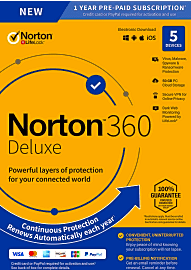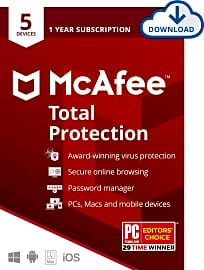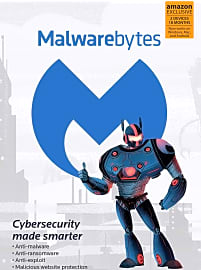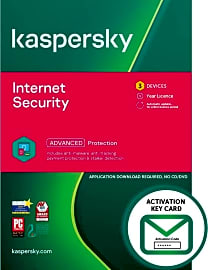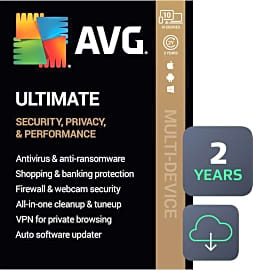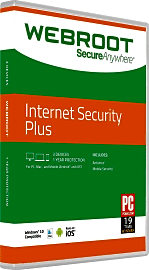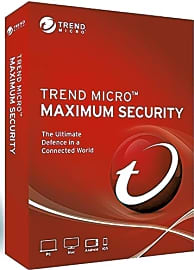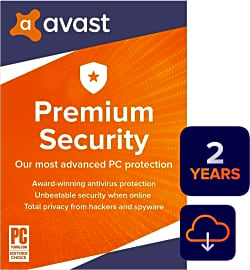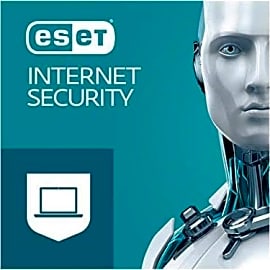The 10 Best Antivirus Software

This wiki has been updated 37 times since it was first published in July of 2015. These days, it's not a question of "if" your electronic devices will be compromised, it's simply a question of "when" and "how." We often forget how much sensitive information is stored on all our gear, so protect your PC, Mac, laptop, tablet, and smartphone from malicious hackers, adware, spyware and even ransomware with something from our selection of capable antivirus software. When users buy our independently chosen editorial choices, we may earn commissions to help fund the Wiki.
Editor's Notes
January 14, 2021:
The players in the antivirus field don't change too often, so this update was mostly about making sure we were recommending the most recent releases, as well as researching any new features that may have been added to a particular software and much it impacted its usefulness to consumers. We generally choose to rely on independent testing more so than those performed by the developer to get an impartial idea of how well they work, and how much they affect system performance. This is reflected in our rankings, with those that scored better in independent testing and/or being resource light receiving a higher recommendation, and those that performed more poorly or which simply had less independent testing results to analyze, not receiving as strong of a recommendation.
December 19, 2019:
Hackers are always finding new ways to infect computers. So, when it comes to anti-virus software, it is important to keep them updated and use the latest versions whenever possible. Because of this, we replaced every one of our previous recommendations with the most current iterations at the time of writing this.
Though the software on this list may be called antivirus programs, most do significantly more than just protect your computer form viruses. For example, Bitdefender Total Security and Kaspersky Internet Security offer parental controls, while the former also integrates a password manager. Webroot Internet Security Plus is another option that offers a password manager, but the real benefits of this software is how light it is on system resources. It only requires 15 MB of storage space and barely affects PC performance when scanning.
With its newest version, Malwarebytes 4.0 finally bills itself as a full antivirus software replacement. Previous iterations were simply designed to catch, as its name suggests, malware. However, with version 4.0, it can function as standalone virus protection, and it does so packaged in a sleek user interface and with less drain on system resources than many others.
It should come as no surprise that McAfee Total Protection ranks highly on our list, since it has been providing reliable virus protection since the late 1980s. In addition to traditional computers, this suite of software can be used on mobile devices and comes with 24/7 live support. Additionally, it features a password manager and includes identity theft monitoring.
What Is A Computer Virus?
The software then offers to decrypt the information for the user at a high price, effectively placing a ransom on their identity.
In computers, a virus is a term used to describe a malicious software program which replicates itself, much like human pathogenic viruses. This process eventually infects various computer programs or important aspects of the computer like the boot drive. A virus can also affect programs by modifying them to produce a desired result.
Many malicious software programs, collectively called malware, are under the virus umbrella, though they have their own names. These include Trojan horses, worms, keyloggers, rootkits, ransomware, spyware, and adware. Each of these malware programs has a specific function, and is designed to achieve the results a hacker desires. The key descriptor in any virus is that it is installs unknowingly or without consent from the victim.
The most common type of malware is a Trojan horse file. Much like the ancient Trojan horse of Greece, the computer program hides its true intent until it is installed. Trojan horse files can be anything as simple as an executable file downloaded from the internet, to an email attachment sent from an unknown recipient. Opening these files acts as a backdoor for the Trojan horse, allowing unfettered access to the user's computer.
These files are particularly dangerous, as they can allow an attacker to view the user's personal information such as passwords and banking information. Trojan files can also allow attackers to view their victims IP address, which further exposes them to malware like rootkits and ransomware.
A rootkit is a type of malware that activates on startup every time the computer is powered on. Rootkits can be difficult to detect and extract because they start before the operating system is completely running. Once a rootkit is installed, the attacker has the ability to install hidden files, user accounts, and various processes directly to the operating system. Rootkits can intercept and transmit data from the keyboard, computer terminal and network connections.
Ransomware is a type of malware which targets a specific IP address. The program encrypts personal files using various algorithms which the hacker can reverse. The software then offers to decrypt the information for the user at a high price, effectively placing a ransom on their identity.
How Does Antivirus Software Work?
Most antivirus software programs target the most common types of spyware and adware. The term spyware covers a few main categories. Trojan horses, keyloggers, tracking cookies, and system monitors are all forms of spyware. These programs are designed to gather information about a user without their knowledge and then send that info to an outside entity.
Should an antivirus software find a keylogger, the program can quarantine it and ask for your permission to eliminate it.
Some spyware is knowingly installed by the owners of public computers in order to monitor users. Possible examples of this include computers at libraries, computer cafes, and shared computers in office buildings. These keyloggers record every key struck on a keyboard. This can potentially compromise credit card information, personal passwords, and private messages sent. Should an antivirus software find a keylogger, the program can quarantine it and ask for your permission to eliminate it.
The other common program antivirus software combats is adware. Advertising-supported software, or simply adware, is a package of software which automatically creates advertisements in order to generate revenue for its creator. In legitimate software programs, certain types of adware and trackers normally exist. These include targeting purchasers of their software for add-ons through the advertisements they see when on the internet or while using their software. The company creates additional revenue, and can provide purchasers who allow this adware substantially lower rates. In malware programs, these ads appear as pop-up windows or windows which cannot be closed.
On the whole, antivirus software eliminates spyware programs through a series of scans, quarantines, and eliminations. An installed antivirus software checks files against a database of known malware programs, sniffing out potentially harmful files. Antivirus software is able to detect malware based on patterns in executable code and the various behaviors of the files themselves.
Benefits of Anivirus Software
Threats to personal security are of the highest concern in the modern era. While many know that including personal information in a password leaves you exposed to account theft, the risks to security do not stop there. Additional actions must be taken in order to ensure safety while using a computer. Installing antivirus software is one such action that can provide many benefits.
Antivirus software is an important piece of creating a cloud-based archive as well.
Antivirus software regularly scans and eliminates any virus it finds on a computer. This keeps the computer from being slowed down by infected programs or hardware, and prevents damage to the PC or network it is on.
Many antivirus software programs also provide email protection. These programs scan emails, email attachments, and downloaded content prior to it being opened. Using an antivirus software to protect a computer also keeps costs low. The cost involved from calling technical support, physically searching for virus files, and purchasing new computers which have been damaged beyond repair is far more than the cost of any antivirus program on the market.
Antivirus software is an important piece of creating a cloud-based archive as well. Along with security measures like encryption and storage measures such as deduplication, antivirus software provides an added layer of assurance to any company's archive.


